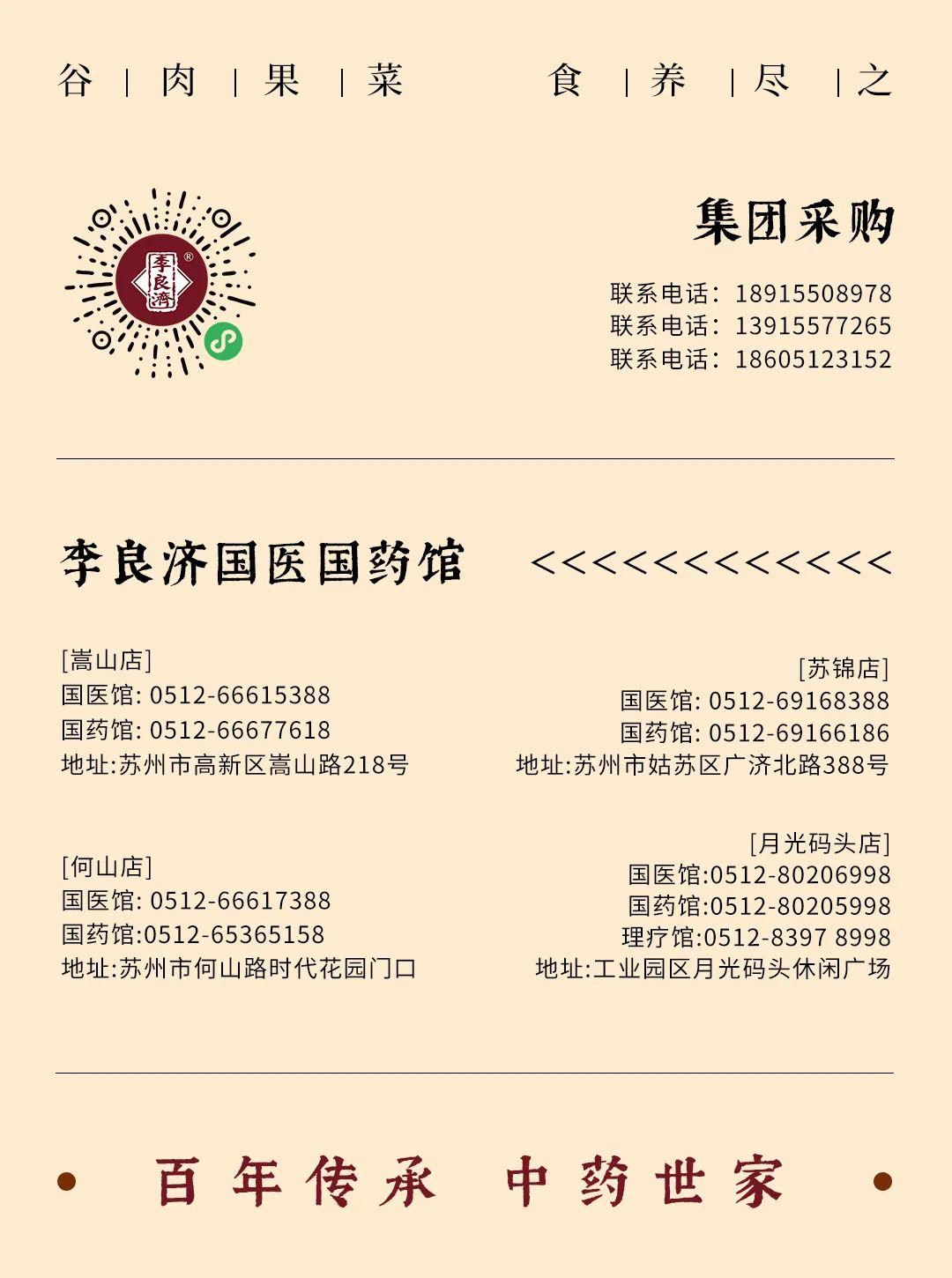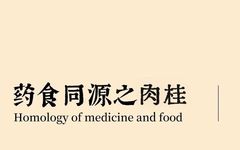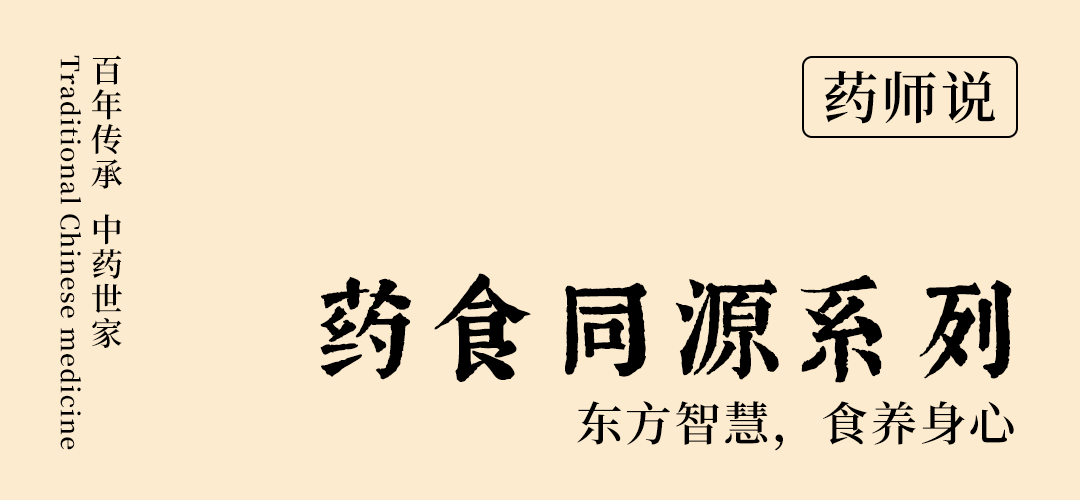
Traditional Chinese Medicine (TCM) culture has a long history. Since “Shennong tasted hundreds of herbs,” the concepts of “medicine” and “food” have been inseparable. This has led to the unique culture of “food as medicine,” which holds that many foods serve as both food and medicine, capable of preventing and treating diseases.
In recent years, the National Health Commission has successively released relevant policies to standardize food-medicine products. Currently, there are over a hundred substances recognized as traditional foods that are included in the “Pharmacopoeia of the People’s Republic of China” (hereinafter referred to as “Chinese Pharmacopoeia”).
The Pharmacist’s Insights series will introduce these food-medicine substances one by one.
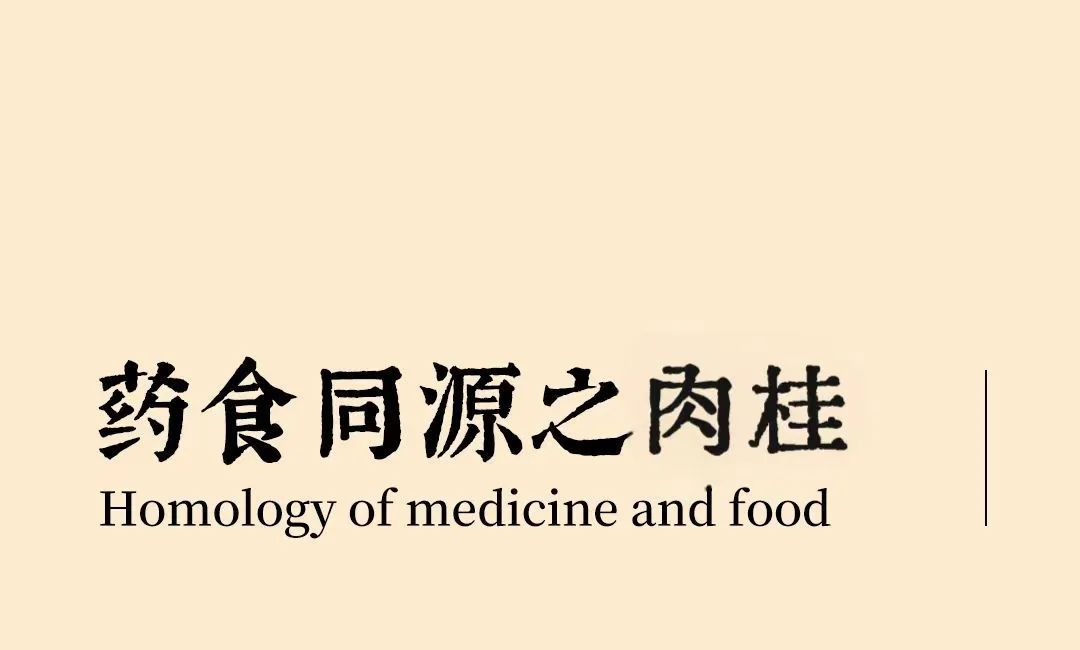
Cinnamon, also known as Gui (桂), Da Gui (大桂), Jun Gui (菌桂), Tong Gui (筒桂), and La Gui (辣桂), is derived from the dried bark of the Cinnamomum cassia tree, a member of the Lauraceae family. It was first recorded in the “Shennong Bencao Jing” (神农本草经) and classified as a superior herb, commonly used in TCM clinical practice.
What is the difference between Gui Zhi (桂枝), Gui Pi (桂皮), and Rou Gui (肉桂)?
Rou Gui (肉桂) is the bark of the Cinnamomum cassia tree, while Gui Zhi (桂枝) refers to its tender branches. Gui Pi (桂皮) is a cousin of Rou Gui, derived from the bark of other species in the Cinnamomum genus, such as Cinnamomum tamala, Cinnamomum cassia, or Cinnamomum aromaticum.
Rou Gui is powerful and specializes in warming the interior, effectively supplementing fire and assisting yang, guiding fire back to the source, treating symptoms of yang deficiency and declining fire, cold pain in the lower abdomen, and yin sores.
Gui Zhi is the tender branch of the Cinnamomum cassia tree, which is milder and also effective in inducing sweating and relieving exterior conditions, treating wind-cold exterior syndromes with or without sweating.
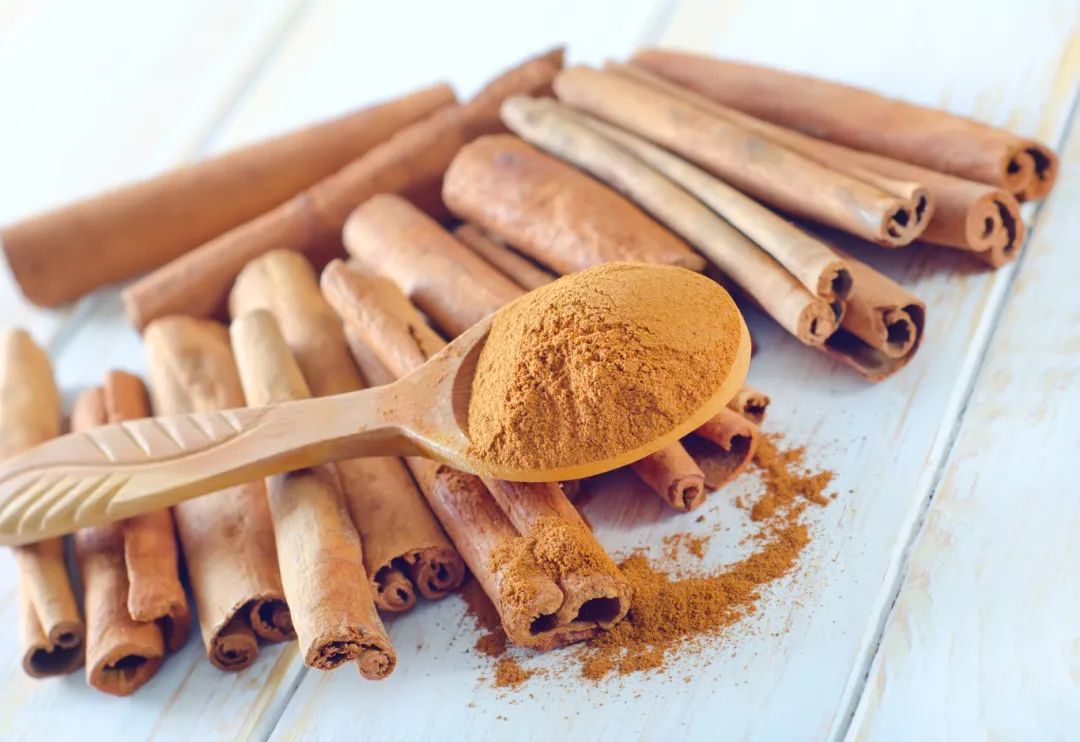
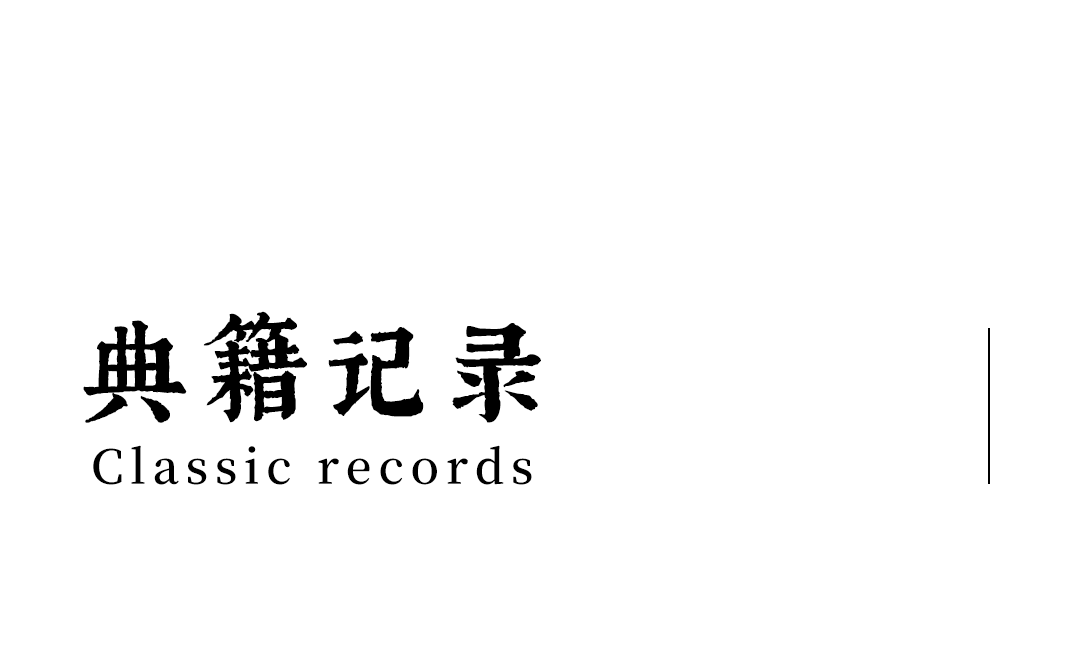
The “Pharmacopoeia” records that Rou Gui has a spicy and sweet flavor, and is very warm. It enters the Kidney (肾), Spleen (脾), Heart (心), and Liver (肝) meridians. It supplements fire and assists yang, guides fire back to the source, disperses cold, alleviates pain, and warms the meridians.
It is used for impotence due to cold in the palace, cold pain in the lower back and knees, shortness of breath due to Kidney deficiency, floating yang, dizziness, red eyes, cold pain in the heart and abdomen, vomiting and diarrhea due to deficiency-cold, cold pain in the lower abdomen, and dysmenorrhea.
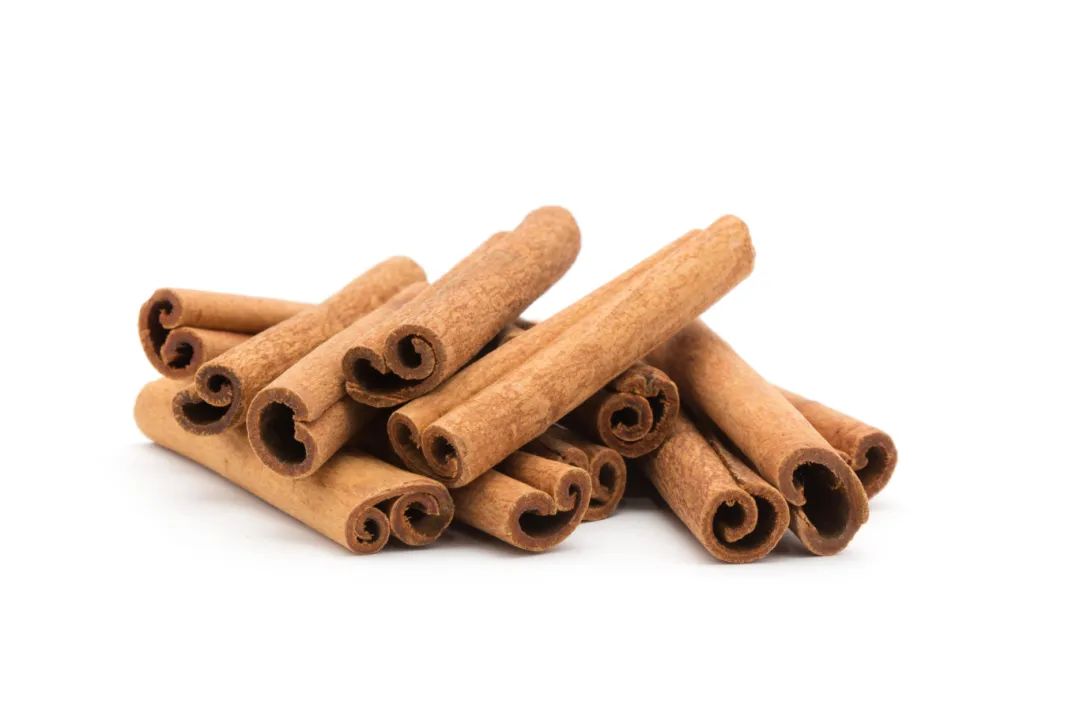
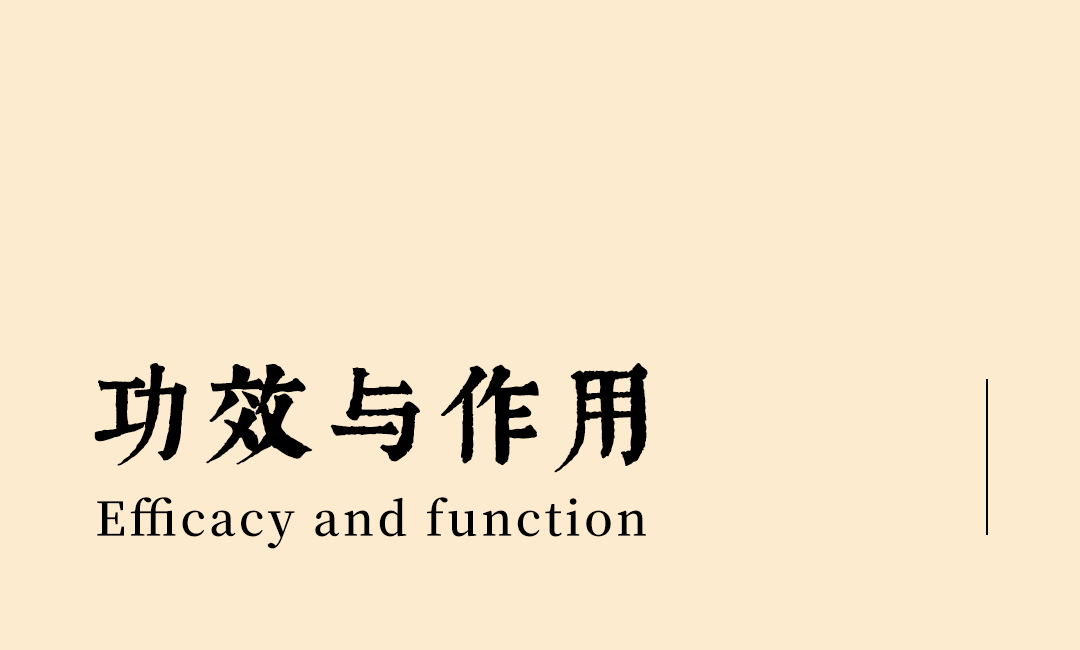
Numerous ancient texts document the effects of Rou Gui:
“Shennong Bencao Jing”: Treats cough and reverse qi, clears phlegm, benefits joints, and tonifies qi.
“Bie Lu”: Treats heart pain, wind in the flank, flank pain, warms the sinews, opens the meridians, stops restlessness, and sweating. It warms the middle, benefits Liver and Lung qi, treats cold and heat in the heart and abdomen, cholera, cramps, headaches, back pain, stops salivation, cough, and nasal congestion; can induce abortion, strengthen bones and joints, open blood vessels, and regulate insufficiency; enhances the effects of all medicines.
“Yao Xing Lun”: Treats nine types of heart pain, kills three worms, breaks blood, regulates menstruation, treats soft feet, numbness, retained placenta, relieves cough and reverse qi, clears phlegm, stops unbearable abdominal cold, treats diarrhea, and nasal polyps. Kills plant and wood toxins.
“Rihua Zi Bencao”: Treats all wind conditions, tonifies the five labor and seven injuries, opens the nine orifices, benefits joints, nourishes essence, brightens the eyes, warms the lower back and knees, breaks phlegm, resolves blood stasis, treats wind bi and joint contraction, strengthens tendons and bones, and promotes muscle growth.
“Yixue Qiyuan”: Tonifies the lower jiao deficiency, treats deep cold and chronic cold, and addresses exterior deficiency with spontaneous sweating.
“Bencao Gangmu”: Treats cold bi, wind mute, yin excess with blood loss, diarrhea, and convulsions; treats yang deficiency with blood loss, internal abscesses, and can induce sweating, transform phlegm, and detoxify snake venom.
Based on the comprehensive records, the effects of Rou Gui can be summarized as follows:
Tonifying Fire and Assisting Yang
Rou Gui is spicy, sweet, and very warm, warming and tonifying the Liver and Kidney, assisting fire and yang, and guiding fire back to the source. It is effective in treating deficiency of the Mingmen fire. It is commonly used for impotence due to Kidney yang deficiency, cold pain in the lower back and knees, frequent urination at night, and nocturnal emissions, often combined with Fu Zi (附子), Shu Di Huang (熟地黄), and Shan Yao (山萸肉), as seen in formulas like “Shen Qi Wan” (肾气丸) and “You Gui Wan” (右归饮).
Dispersing Cold and Alleviating Pain
Rou Gui is sweet and warm, assisting yang to tonify deficiency, and spicy and warm to disperse cold and alleviate pain. It is effective in treating cold evil invading or spleen and stomach deficiency-cold causing abdominal pain. It can be used alone as a powder, or decocted with Gan Jiang (干姜), Gao Liang Jiang (高良姜), and Bi Ba (荜茇), as in the “Da Yi Han Wan” (大已寒丸).
Activating Blood and Opening Meridians
Rou Gui has a strong warming and activating effect, particularly on the blood aspect, thus it can be used to treat menstrual disorders and dysmenorrhea caused by cold stagnation and blood stasis. It can be combined with Dang Gui (当归), Chuan Xiong (川芎), and Xiao Hui Xiang (小茴香), as in the “Shao Fu Zhu Yu Tang” (少腹逐瘀汤).
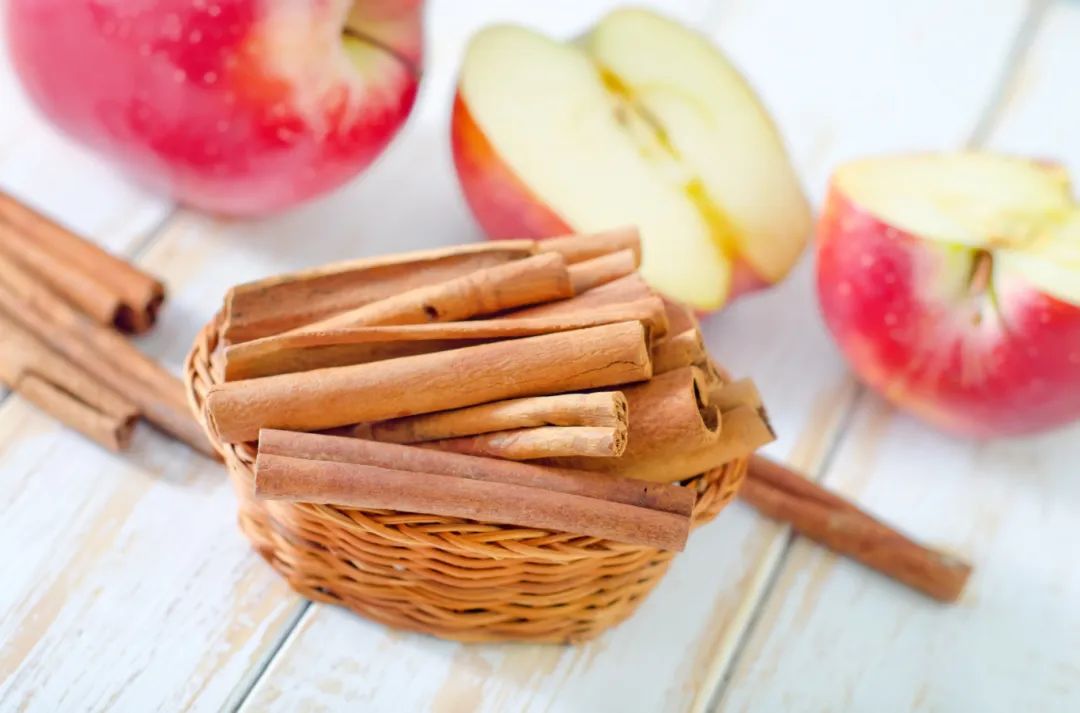
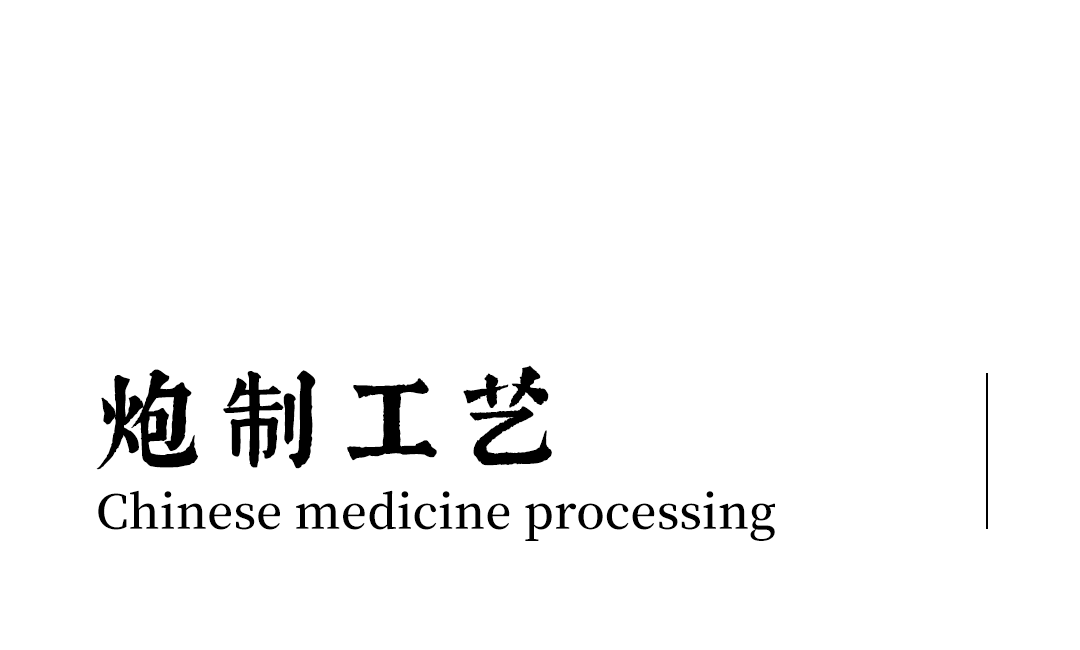
Rou Gui is harvested from cinnamon trees that are at least 10 years old, with the phloem having developed an oil layer. The bark can be harvested in spring or autumn, with the best quality obtained from bark harvested in September.
The bark is harvested in lengths slightly longer than the commercial specifications (41cm), and then cut into strips slightly wider than the specifications (8-12cm). The bark is then processed using methods such as the earth pit steaming method or thin cover steaming method.
Bark harvested in April-May is called spring cinnamon and is of lower quality, while bark harvested in September is called autumn cinnamon and is of superior quality. The dried bark is referred to as Gui Pi (桂皮), and processed products include Gui Tong (桂通), Ban Gui (板桂), Qi Bian Gui (企边桂), and You Gui (油桂).
During processing, impurities and rough bark are removed. It is crushed before use.
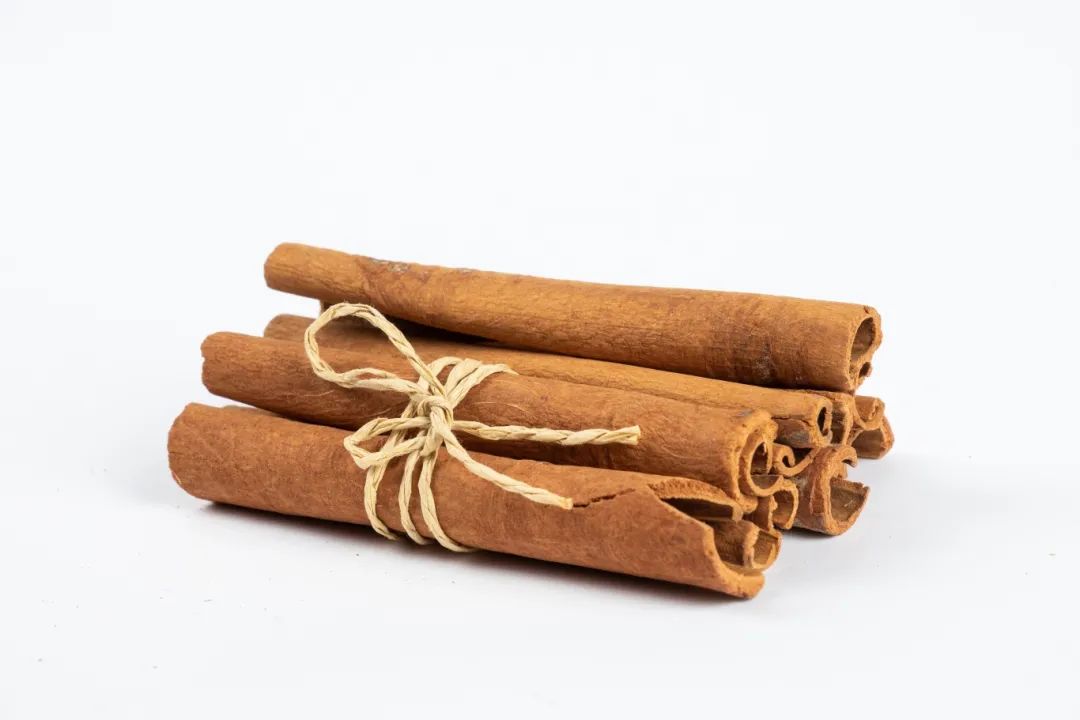
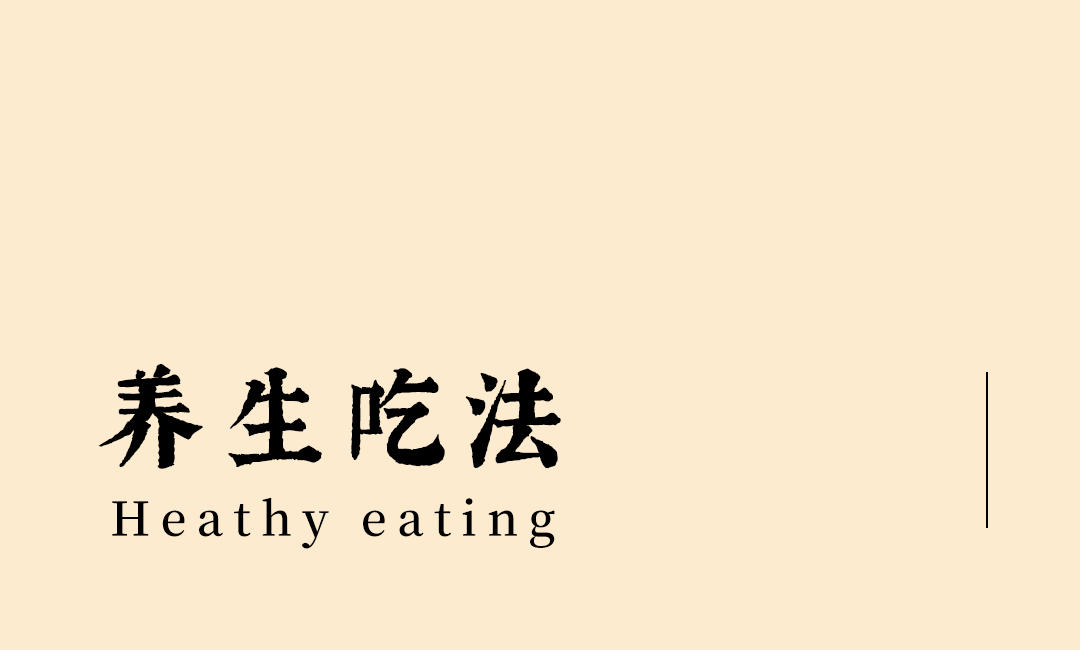
[ I ] Cinnamon Brown Sugar Tea
Ingredients: Rou Gui (肉桂) and Gao Liang Jiang (高良姜) each 5g, appropriate amount of brown sugar
Method: Decoction of the above herbs, strain, and take warm in two doses.
Effects: Disperses cold and alleviates pain
[ II ] Cinnamon Porridge
Ingredients: 1-2g of Rou Gui powder, 100g of japonica rice, appropriate amount of sugar
Method: Wash the japonica rice, add sugar, and cook into porridge. When cooked, add Rou Gui powder and simmer on low heat until thickened, then stop cooking.
Usage: Take warm on an empty stomach before bed each night.
Effects: Warms the middle and tonifies yang. Suitable for cold in the palace causing infertility and deficiency-cold dysmenorrhea.
[ III ] Lamb Cinnamon Soup
Ingredients: 150g of lamb, 5g of Rou Gui, ginger, jujube, cooking wine, salt, and cooking oil.
Method: Clean the lamb, cut into pieces, marinate with cooking wine, cooking oil, and a little salt; place Rou Gui and ginger in a pot, add an appropriate amount of water, and simmer. After straining, add the lamb and jujube, and cook until the meat is tender. Season with salt and serve.
Effects: Warms the spleen and disperses cold
| Previous Reviews
# Li Liangji Honored as “Chinese Time-Honored Brand,” Inheriting a Century of Quality for a Brilliant Future
▲ Click the black text to view the original article
# Working During the Day, Health Cultivation at Night: Li Liangji’s Night Clinic Becomes a New Choice for Young People’s Nightlife
▲ Click the black text to view the original article
# Li Liangji Chairman Li Jianhua, Proposes Suggestions to Promote the Inheritance and Innovation of TCM
▲ Click the black text to view the original article
# Li Liangji’s Fortune Box Brings Health Gifts for the New Year, Welcoming Good Luck
▲ Click the black text to view the original article
# Choose This for Year-End Gifts! A Health Gift That Touches the Heart!
▲ Click the black text to view the original article
